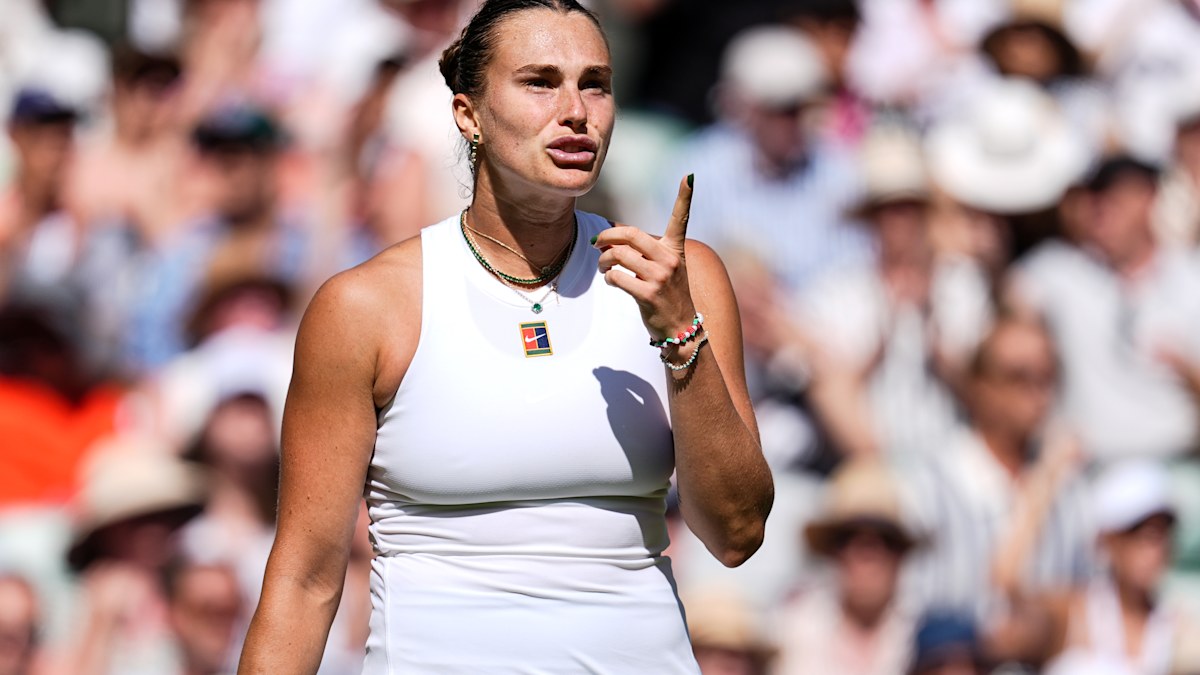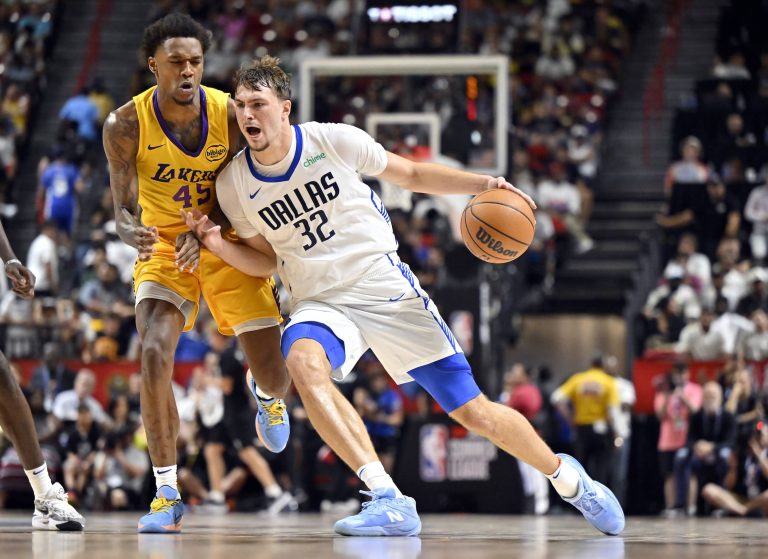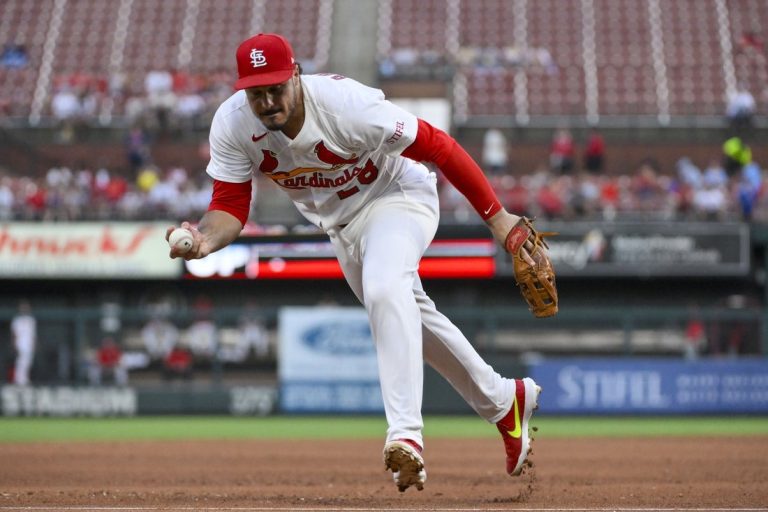As if there were any doubt whether Aryna Sabalenka’s loss in the Wimbledon semi-finals brought to mind her loss in the French Open final — and its aftermath — a month ago, she made it quite clear right away.
“Are you guys waiting for something? You’re not going to see a ‘Roland-Garros press conference,’” the No.1-ranked Sabalenka said when she arrived for her question-and-answer session with reporters after being eliminated by Amanda Anisimova 6-4, 4-6, 6-4 at centre court, “so anyone who was waiting for that, you can leave right now.”
It was delivered as a punch line, knowing full well that the three-time grand slam champion was widely criticised for her words following a three-set loss to Coco Gauff with the trophy at stake in Paris.
READ MORE: Ten players Blues must consider in sweeping shake-up
READ MORE: Prop’s ugly face slap mars Bulldogs’ resilient win
READ MORE: Troubling Aussie batting reality exposed by Test rankings
There was plenty of online venom directed Sabalenka’s way.
So much so, that Sabalenka first wrote a private apology to Gauff, then offered a public mea culpa, before the two patched things up by posting TikTok and Instagram videos together right before the start of competition at the All England Club.
“I just don’t want to face that hate again,” Sabalenka said Friday. “We’re all people. We all can lose control over our emotions. It’s absolutely normal. Every time when I was really that close in that match today to completely lose it and start — I don’t know — yelling, screaming, smashing the racquets, I keep reminding myself that’s not an option.”

Aryna Sabalenka was annoyed throughout the clash. Getty
After praising Anisimova — an American seeded 13th who will play in her first major final against Iga Swiatek — as “the better player,” Sabalenka spoke about the feelings she experiences following a setback.
“You always feel like you want to die, you don’t want to exist anymore, and this is the end of your life,” Sabalenka said.
“But then you sit there a little bit, and you think about what you could have done differently on the match. I mean, you see stuff where you wasn’t at your best in the match. You see that the other player perform much better.
“You kind of, like, can see things better.
Watch all the action from Wimbledon 2025 live & on-demand on Stan Sport, with two courts in 4K UHD. Coverage of select matches free-to-air on Nine and streaming on 9Now
“But the first moment always the worst one because every time you compete at that tournament, and you get to the last stages, you think that you’re getting close to your dream.
“Then you lose the match, and you feel like, OK, this is the end.”
Sabalenka was hoping to become the first woman in a decade to reach four major finals in a row after winning the US Open last year, then finishing as the runner-up at the Australian Open and French Open in 2025.
She also was trying to get to her first title match at Wimbledon.
So used to overpowering opponents, Sabalenka ran into someone who hits as big a ball as she does.

Amanda Anisimova and Aryna Sabalenka embrace. Anadolu via Getty Images
“She was more brave today,” Sabalenka said. “Maybe when I was just trying to stay in the point, she was going for all. She was playing more aggressive.”
There were other things about Anisimova that Sabalenka acknowledged were irritating.
During one exchange, for example, Anisimova let out a shout before a point was over, and Sabalenka thought it was a premature celebration.
“She was already celebrating it. I was, like, I mean, that’s a bit too early,” Sabalenka said. “Then she kind of pissed me off saying that, oh, that’s what she does all the time.
“I was grateful that she actually said that because I was, like, it’s actually help me to keep fighting. I’m like, OK, now I’m going to show you the tennis.
“So I came back because I got really angry in that moment. So probably in the third set I should have, like, remembered, and you know, probably will help. It is what it is.”
Asked about that moment, Anisimova said: “I wasn’t celebrating. It was just a long grunt, I guess. I don’t really know what was the deal there, to be honest, because I didn’t feel like it was that interfering. But I tried to not do it again.”
During another point, Anisimova benefited from the ball trickling over the tape of the net and, instead of the usual “Sorry, not sorry” gesture players often use by raising a hand when that happens, seemed to be celebrating.
“I was like, ‘You don’t want to say sorry?’ She just wanted, I guess, badly to win this match,” Sabalenka said. “If she doesn’t feel like saying sorry — she barely got that point and she didn’t feel like saying sorry for that tricky situation? — that’s on her.”
As for what comes next for Sabalenka?
“I never give up,” she said, “and I’m going to come back stronger, for sure.”






